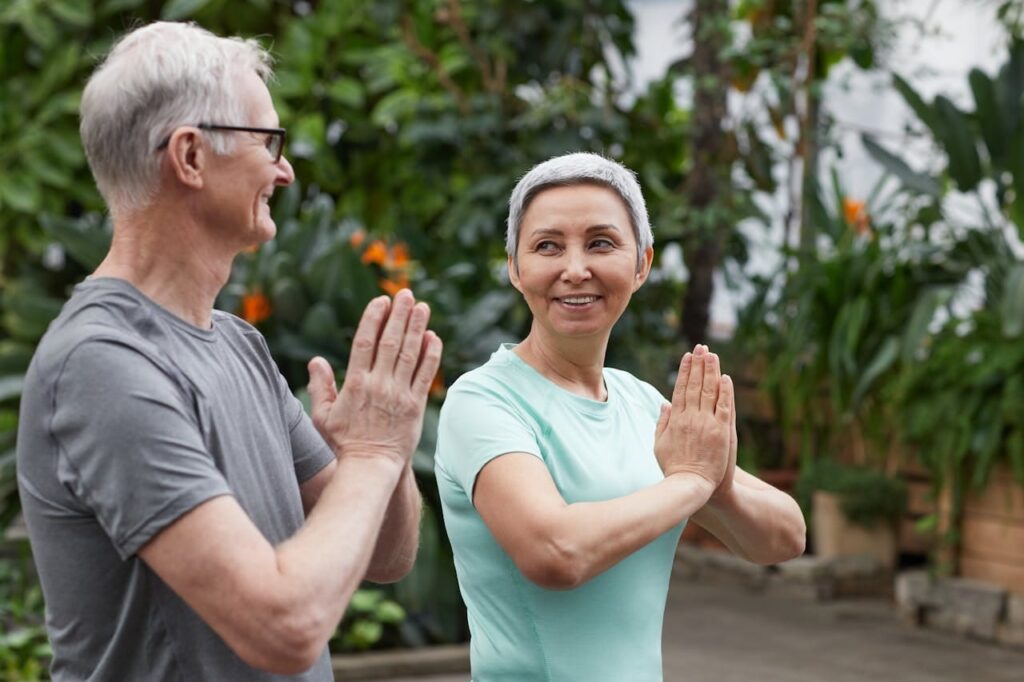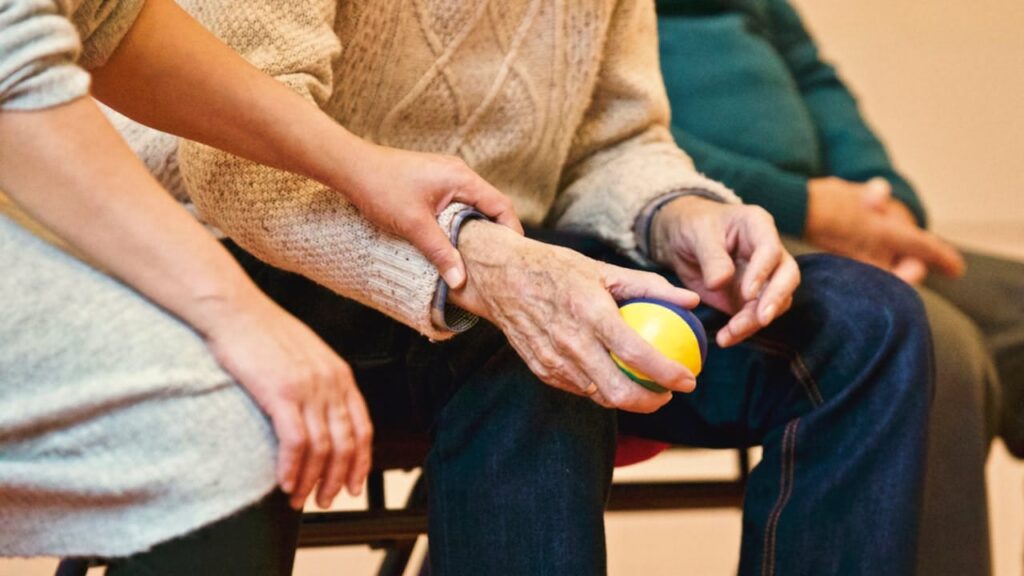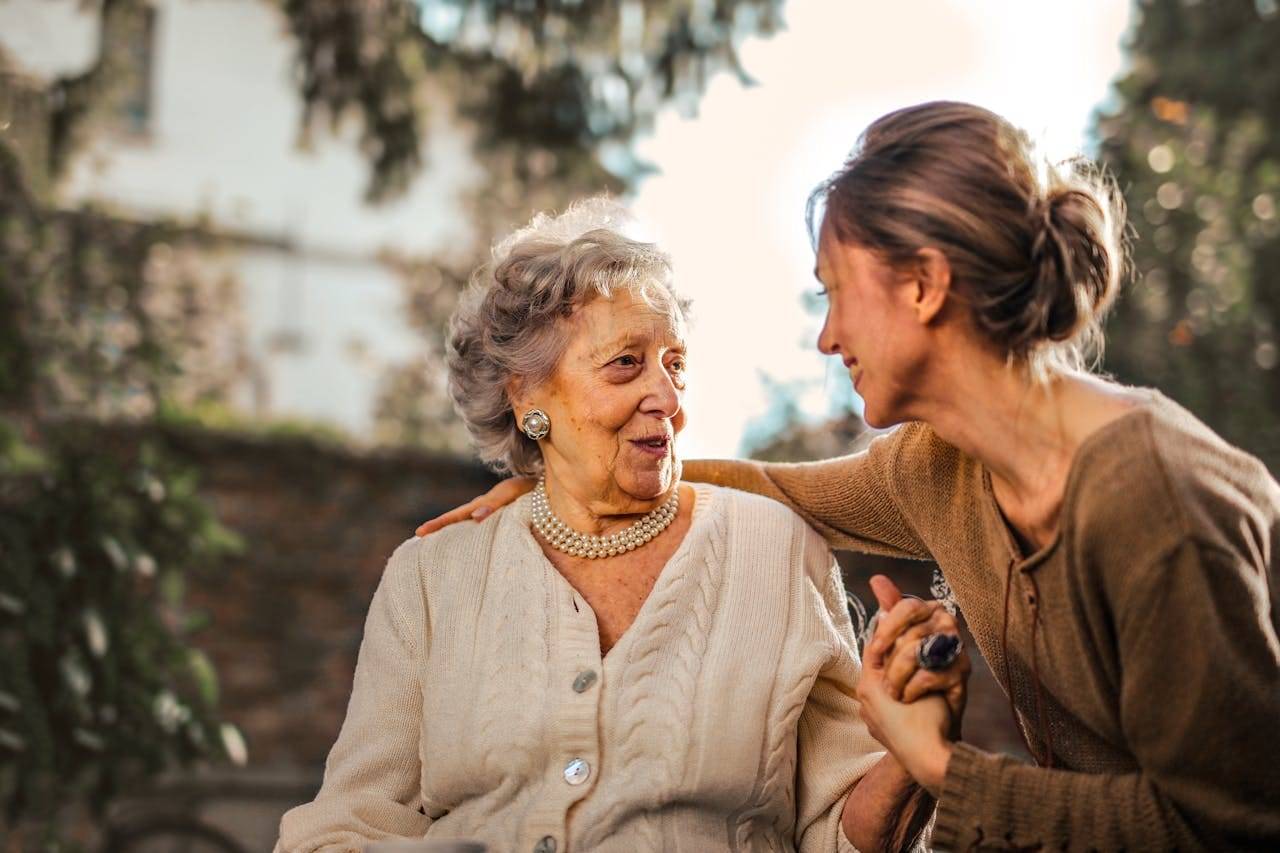Table of Contents
Toggle What’s the meaning of Elderly care Jobs?
What’s the meaning of Elderly care Jobs?
Elderly care Jobs, also known as elderly care or senior care, refers to the comprehensive services and support handed to aged individuals, generally those who are aged 65 and over. The primary thing of senior care is to ensure the health, safety, and overall well-being of seniors as they progress. This care can be delivered in colorful settings, including the existent’s own home, supported living installations, nursing homes, or through in-home care services.
- Elderly care jobs encompass a range of services and backing, including
1. Healthcare Services furnishing medical care, drug operation, and regular check-ups to address age-related health issues.
2. Backing with Conditioning of Daily Living ( ADLs) Helping seniors with diurnal tasks like bathing, dressing, mess medication, and mobility.
3. Fellowship Offering social commerce and emotional support to combat loneliness and depression.
4. Nutritive Support icing that seniors have access to nutritional refections and address salutary requirements.
5. Safety and Home variations Making necessary variations to the home to enhance safety and availability for senior individualities.
6. Transportation furnishing transportation for medical movables and other errands.
7. Memory Care Specialized care for individuals with madness or Alzheimer’s complaints.
8. Rehabilitative Services aiding seniors in recovering from injuries or surgeries.
9. Palliative and Hospice Care End-of-life care and support for individuals with terminal ails.
10. Emotional and Cerebral Support Addressing internal health enterprises and offering comfort or remedy when demanded.
Elderly care is acclimatized to the unique requirements and preferences of each elderly existent, as the aging process varies from person to person. It’s frequently handled by family members, professional caregivers, or a combination of both.
The end is to help seniors maintain their independence, and quality of life, and quality as they progress, allowing them to live comfortably and safely while growing in place or a care installation, depending on their circumstances and preferences.
What’s important in mind for the senior?
Minding for seniors requires a thoughtful and holistic approach that considers their physical, emotional, and social well-being. Then are some important aspects to consider when minding the senior
1. Respect and quality Treat senior individuals with respect and quality, valuing their life gests and individuality.
2. Safety and Health ensure a safe and clean terrain, addressing any implicit hazards in the home or care installation. Attend to their healthcare needs, including regular check-ups, and drug operations.
3. Communication Maintain open and effective communication. hear their enterprises, preferences, and needs, and involve them in decision-making as much as possible.
4. Fellowship Combat loneliness and insulation by furnishing fellowship, social commerce, and emotional support. Encourage social conditioning and connections.
5. Nutrition and Hydration ensure that they’ve access to nutritional refections and remain adequately doused. Address any salutary restrictions or special requirements.
6. Particular Hygiene help with particular hygiene, including bathing, fixing, and dressing, as demanded.
7. Mobility and Exercise Encourage physical exertion and help maintain mobility through exercises, as applicable. Make necessary home variations to enhance availability.
8. Medication Management Help with organizing and administering specifics as specified and cover for any side goods or relations.
9. Mental and Emotional well-being Addresses their internal health requirements, including depression, anxiety, or cognitive decline. Engage in stimulating conditioning and memory exercises.
10. Fiscal and Legal Matters help with fiscal and legal matters as demanded, similar to managing finances, legal documents, and healthcare directives.
11. End-of-Life Planning If applicable, bandy and validate end-of-life preferences, including palliative care and advanced directives.
12. Respite Care for Caregivers If family members are furnishing care, ensure they’ve openings for respite to help the caregiver collapse.
13. Regular Check-ups and preventative Care Schedule and attend medical movables, wireworks, and immunizations as demanded to help with health issues.
14. Encourage Independence Support their independence and autonomy, allowing them to make choices and opinions to the stylish of their capability.
15. Home Safety Make adaptations to the living terrain to help cascades and other accidents.
16. Transportation Arrange for transportation to medical movables and other outings.
17. Case Advocacy Advocate for their requirements within the healthcare system, ensuring they admit applicable and compassionate care.
18. Artistic perceptivity Respect artistic and religious preferences and traditions.
19. Quality of Life Focus on enhancing their overall quality of life, including pursuits, interests, and a sense of purpose.
20. Legal Protections Be apprehensive of and advocate for their legal rights and protections, similar to those related to elder abuse or neglect.
Minding for the senior is a deeply satisfying but frequently grueling responsibility. It’s essential to knitter care to their requirements and preferences, conforming as their requirements change over time. Effective senior care should promote independence, enhance well-being, and ensure a comfortable and staid aging process.
How do you handle a senior case?
· Talking With Your Aged Cases| National Institute on Aging
· Tips for communicating with aged cases
· Speak to the case as a fellow grown-up
· Make aged cases comfortable
· Avoid whisking aged cases
· Speak plainly
· Address the patient face-to-face
· Write down or publish takeaway points
· Fete that people from different backgrounds may have different prospects
What’s an illustration of Elderly care Jobs?
They are making sure that the customer has access to enough drinking water. The customer takes their correct drug if they need any. They accompany the customer when they move around if they’ve trouble walking or are at a high threat of falling.
What are the 8 top elderly care chops?
· Tolerance
· Professionalism
· Time Management Chops
· Empathy
· Inflexibility
· Observation Chops
· Responsibility
· Communication Chops
What’s the standard quality of life :
Standard quality of life refers to a birth position of well-being and satisfaction that individuals can nicely anticipate to witness in their diurnal lives. It encompasses colorful aspects, including physical health, emotional well-being, social relations, and access to introductory requirements. In a standard quality of life, individuals have the means to meet their abecedarian conditions, such as nutritional food, clean water, safe sanctum, and healthcare.
They also have to pursue particular pretensions, engage in fulfilling conditioning, and maintain positive connections. Standard quality of life ensures that people live without overdue difficulty, have access to education, employment, and rest, and can share in the artistic, social, and profitable aspects of their society. While this standard may vary across different societies and socioeconomic surrounds, it serves as a foundational standard for assessing and perfecting the overall well-being of individuals and communities.
What’s the quality of life in Elderly care Jobs?
Quality of life in Elderly care Jobs refers to the overall well-being, satisfaction, and fulfillment endured by aged individuals who live in care installations or admit care and support as they progress. It encompasses a range of physical, emotional, social, and environmental factors that contribute to a senior person’s sense of pleasure and quality. Quality of life in aged care is a multidimensional conception, and icing it involves meeting the different requirements and preferences of aged grown-ups. Then are some crucial factors
1. Physical Well- furnishing proper healthcare, Elderly care Jobs including pain operation, drug operation, and addressing habitual health conditions to maintain or ameliorate physical health.
2. Nutrition and Hydration ensuring that residents have access to nutritional and mouthwatering refections, as well as acceptable hydration to maintain their health and energy situations.
3. Safety and Security Creating a safe and secure living terrain to help accidents and reduce stress and anxiety.
4. Mobility and Independence Promoting physical mobility and independence through exercises, recuperation, and assistive bias, allowing residents to share in diurnal conditioning.
5. Emotional Well- Addressing internal health requirements, similar to depression and anxiety, through emotional support, comforting, and engaging conditioning.
6. Social Interaction Fostering openings for socialization, engagement, and fellowship with peers and caregivers to combat loneliness and insulation.
7. Quality and Respect Treating residents with respect, quality, and empathy, valuing their guests and individuality.
8. Autonomy and Choice Allowing residents to make choices and opinions about their diurnal routines, conditioning, and watching to the extent possible.
9. Cultural and Spiritual requirements esteeming artistic, religious, and spiritual beliefs and practices, and furnishing applicable lodgment.
10. Engaging Conditioning Offering a variety of recreational and meaningful conditioning to stimulate residers’ minds and give a sense of purpose.
11. Family and Community Involvement Encouraging family involvement in the care process and connecting residents with the broader community.
12. End-of-Life Care furnishing compassionate and probative end-of-life care for those with terminal ails, fastening on comfort and pain operation.
13. Environmental Considerations Maintaining clean, comfortable, and aesthetically pleasing living spaces with proper lighting and ventilation.
14. Respect for Legal and Ethical Rights ensuring that residers’ legal rights are upheld, including informed concurrence and the right to refuse treatment.
15. Quality Staff relations Training staff to give regardful, compassionate, and person-centered care.
Quality of life in aged care is a dynamic concept that can vary significantly from one existing to another. It should be collectively acclimatized to meet the specific requirements, preferences, and pretensions of each occupant. Regular assessments and communication with residents and their families are essential to ensuring that their prospects and quality of life are constantly met and bettered in aged care settings.
What’s nursing care for the senior?
Nursing care for the Elderly care Jobs frequently appertained to as senior nursing or eldercare nursing, is a technical form of healthcare that focuses on furnishing comprehensive and individualized medical and nursing care for aged grown-ups. It involves addressing the unique physical, emotional, and social requirements of senior individuals to promote their well-being and maintain their quality of life. Then are some crucial aspects of nursing care for the senior
1. Assessment and Monitoring Senior nurses conduct thorough assessments to estimate the health and functional status of senior cases. They continuously cover vital signs and health pointers to describe any changes or issues.
2. Medication Management Administer and examiner specifics to ensure that senior cases are entering the right boluses at the right times, and to watch for implicit side goods or relations.
3. Habitual Disease Management Manage habitual health conditions similar to diabetes, hypertension, heart complaints, and arthritis, helping senior individuals maintain their health and quality of life.
4. Pain Management Assess and manage pain in senior cases, especially those with conditions like arthritis, cancer, or post-surgical recovery.
5. Fall Prevention Implement fall forestallment strategies to reduce the threat of cascade, which can lead to serious injuries in seniors.
6. Crack Care gives technical care for injuries, including pressure ulcers or surgical lacerations, to ensure proper mending and help complications.
7. Nutrition and Hydration Monitor and support Elderly care Jobs in maintaining proper nutrition and hydration, addressing any salutary restrictions or nutritive requirements.
8. Mobility and Rehabilitation Help aged grown-ups maintain or recapture mobility through physical remedy and recuperation exercises, especially after injuries or surgeries.
9. Cognitive Health Addresses cognitive decline and madness-related challenges by enforcing memory-enhancing strategies and furnishing a safe terrain.
10. End-of-Life Care Offer palliative and lodge care for Elderly care Jobs cases with terminal ails, fastening on pain operation, comfort, and emotional support.
11. Infection Control ensures proper hygiene and infection control measures to help illness in senior cases who may have compromised vulnerable systems.
12. Emotional Support gives emotional and cerebral support to help senior cases manage the challenges of aging, loss, and changes in health.
13. Family Education Educate and involve family members in the care plan, helping them understand the requirements and preferences of their senior loved ones.
14. Advocacy Act as lawyers for the Elderly care Jobs within the healthcare system, ensuring that their rights and requirements are admired.
15. Artistic perceptivity Respect artistic and religious beliefs and traditions in care delivery.
FAQs ( Frequently Asked Questions)
Elderly care Jobs, also known as elderly care or senior care, refers to the comprehensive services and support handed to aged individuals, generally those who are aged 65 and over.
1. Healthcare Services furnishing medical care, drug operation, and regular check-ups to address age-related health issues.
2. Backing with Conditioning of Daily Living ( ADLs) Helping seniors with diurnal tasks like bathing, dressing, mess medication, and mobility.
3. Fellowship Offering social commerce and emotional support to combat loneliness and depression.
4. Nutritive Support icing that seniors have access to nutritional refections and address salutary requirements.
5. Safety and Home variations Making necessary variations to the home to enhance safety and availability for senior individualities.
6. Transportation furnishing transportation for medical movables and other errands.
7. Memory Care Specialized care for individuals with madness or Alzheimer’s complaints.
8. Rehabilitative Services aiding seniors in recovering from injuries or surgeries.
9. Palliative and Hospice Care End-of-life care and support for individuals with terminal ails.
10. Emotional and Cerebral Support Addressing internal health enterprises and offering comfort or remedy when demanded.
· Talking With Your Aged Cases| National Institute on Aging
· Tips for communicating with aged cases
· Speak to the case as a fellow grown-up
· Make aged cases comfortable
· Avoid whisking aged cases
· Speak plainly
· Address the patient face-to-face
· Write down or publish takeaway points
· Fete that people from different backgrounds may have different prospects
· Tolerance
· Professionalism
· Time Management Chops
· Empathy
· Inflexibility
· Observation Chops
· Responsibility
· Communication Chops
Standard quality of life refers to a birth position of well-being and satisfaction that individuals can nicely anticipate to witness in their diurnal lives. It encompasses colorful aspects, including physical health, emotional well-being, social relations, and access to introductory requirements. In a standard quality of life, individuals have the means to meet their abecedarian conditions, such as nutritional food, clean water, safe sanctum, and healthcare.
Nursing care for the Elderly care Jobs frequently appertained to as senior nursing or eldercare nursing, is a technical form of healthcare that focuses on furnishing comprehensive and individualized medical and nursing care for aged grown-ups. It involves addressing the unique physical, emotional, and social requirements of senior individuals to promote their well-being and maintain their quality of life. Then are some crucial aspects of nursing care for the senior
